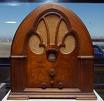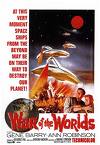By John Gilstrap
http://www.johngilstrap.com
No Mercy is now arriving in stores, and the publicity push has begun. This morning, I awoke at zero-dark-early to be bright eyed and clear-voiced for my 7:15 live radio interview for the New York market. According to the notes from my publicist, the interview was to last between 10 and 12 minutes. It in fact lasted two. Was it something I said? Something I didn’t say?
Perhaps it was because guest host Rob was sitting in for regular host Frank. Or, maybe I’m just not as fleet of tongue on the radio as I thought I was.
But I do good crowd. Two days ago, I killed at the library event I did in Oakton, Virginia, near my home—and no, the audience wasn’t stacked with friends and relatives. I was really on. They laughed when they were supposed to, they asked engaging questions, and then they applauded enthusiastically at the end. I enjoy public speaking, and at the risk of sounding immodest, I’m pretty good at it.
I’m thinking, though, that maybe I’m not so good with radio. In fact, the more I ruminate, the more I’m convinced that my discomfort has a lot to do with the cold start. You sit on the phone, listening to the end of the lead-in commercial, and then you hear something like, “We have thriller author John Gilstrap on the phone with us now . . .” In a live speech, this is the moment when you check your fly one last time, square your shoulders and wait for the applause to bring you on. On the radio, all you get to do is take a last breath.
“. . . Good morning, John. Thanks for coming on the show.”
“Good morning to you Tom. Thanks for having me.”
“So tell us about No Mercy.”
Cue the stammer. A year ago, I worked my ass off to get the manuscript in at fewer than 500 pages. Now, on live radio, I’ve got just a few seconds to introduce a character and a plot and a theme, all without the thoughtful pauses that work so well on stage. Ideally, you mention the title a couple of times, and if you can make it happen, you mention your website. All this without sounding like the Sham-Wow guy: “No Mercy is the best gol-durned book you’ll ever read, Tom. That’s 1-800-NO MERCY. Operators are standing by.” [Note to self: I should have gotten an 800 number. Damn.]
In my version of a perfect media world, all interviews would be more about the author and the story behind the story than about the book itself. Think about it: the host can sum up the plot in his introduction just by reading the jacket notes. Then, how cool would it be to get a question like, “No Mercy sounds like an exciting read. Does this sort of freelance hostage rescue contractor actually exist?” That opens all kinds of avenues to be explored. In my world, an interview would really be a conversation in front of a few thousand eavesdroppers.
In my perfect media world, no one would ever say to a guest, “So, tell me about yourself.” It’s a great question if the point of an interview is to get a job, but outside of that milieu, I think it’s lazy hosting. Again, they need only take a glance at the jacket notes. It sounds stupid for me to mention that I’m a safety engineer and a former firefighter because it’s a non-sequitur in the middle of a discussion about books. But if the host mentions it and then asks, “How does someone with that background come to writing books about hostage rescuers?” then we’ve again got fodder for a good conversation.
But we don’t live in a perfect world, and I’ve got a bunch more of this coming—in some cases complete with television cameras.
Give me a hand, folks. How do you handle this? How do you handle the impossible questions? How do you manage a bad interview? What are the elements of the very best interviews you’ve done?





